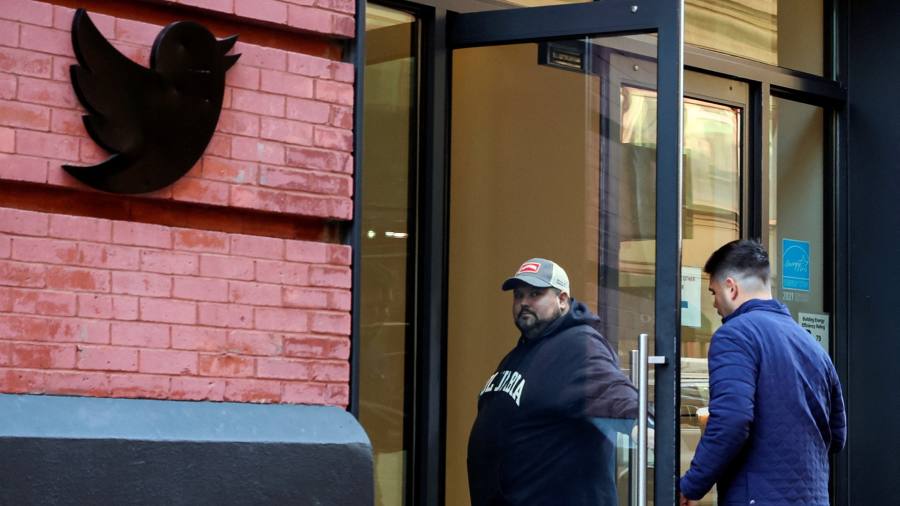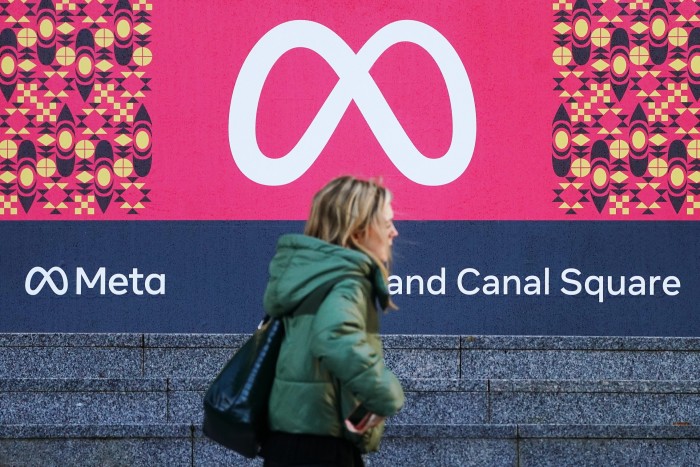
For anyone looking for more evidence that some of the tech industry’s most successful companies are entering a new, low-growth phase, the arrival of mass job losses will look like an important moment. The companies’ high growth rates, even as they reached massive size, seemed to defy economic gravity. Not anymore.
Elon Musk’s precipitate move to axe half of Twitter’s workforce, with the loss of 3,700 jobs, came days before Facebook parent Meta said it was sacking 11,000 workers, or more than one in eight.
Meanwhile Stripe, one of the most successful private payments companies, cut around 1,100 people, or 14 per cent of its workforce — one of the most visible signs of the wave of job cuts that have been sweeping through the world of private tech startups.
This kind of company-wide “downsizing” — the euphemism once used by companies in other industries to justify mass job cuts — is just the most visible sign of the reversal in the tech industry’s hiring boom. Across the industry, marginal projects are being shut down and hiring freezes imposed.
What makes this all the more striking is that it has hit a group of companies that are still some of the richest on the planet, while also reversing a rapid period of expansion. Twitter’s headcount had doubled in the space of five years. Meta’s had risen more than three-fold.
A simplistic explanation is that the good times simply led to weak management that has now been exposed by a downturn in the economy. Blinded by a growth spurt, the tech companies simply failed to prepare for the inevitable reversal.
The combined revenues of the five biggest tech companies — Alphabet, Amazon, Apple, Meta and Microsoft — soared during the pandemic, jumping by 19 per cent in 2020 and 28 per cent in 2021. This year, by contrast, growth is expected by analysts to fall back to 9 per cent, the same as it was in 2019.

Yet Big Tech’s hiring binge has actually accelerated into the downturn. Leaving aside Amazon, which had a 1.6mn-strong workforce at the end 2021, the other four have added nearly 100,000 workers between them over the past 12 months, for a growth rate of 18 per cent. That is well above the 10-13 per cent annual growth seen over the last half-decade.
The mea culpas have been piling up from tech executives. One explanation is simply that they misread the economy. Stripe CEO Patrick Collison said he had been over-confident in thinking that the growth spurt that began in 2020 would continue through 2023.
Another was the mistaken belief that the pandemic jump in online activity would lead to a step-change in business. Instead, many people have quickly returned to old habits and ecommerce has fallen back to pre-pandemic levels. Meta co-founder Mark Zuckerberg said he was among the people to make this error.
Yet besides misjudgment and weak management, there were also some strong incentives behind tech’s hiring spurt. One was the race to attract scarce engineering talent. According to some, that left tech leaders like Zuckerberg with little choice but to increase hiring, even if they knew they would probably need to take severe corrective action later on.
A long period of rock-bottom interest rates also made it economically rational for tech companies to invest in new projects that would not see a payoff for many years. One venture capital investor who sits on a number of private tech company boards said this kind of thinking was pervasive.
Competitive concerns also played their part, this investor says: Companies were worried that if they didn’t sink money into long-term bets that might determine the future of the tech industry, their rivals would. Another strong incentive to hire was the clamour among stock market investors for growth at almost any price.
With the turning of the interest rate cycle, all of these incentives have evaporated. The only question now is how widely this has sunk in. Still flush with cash and beset by the habitual optimism that pervades the industry, many tech companies are still looking for a return to what, in recent years, has passed as normality.
Collison sounded an ominous note in his message to Stripe’s workers: “We think that 2022 represents the beginning of a different economic climate.” As that message sinks in more widely, there are likely to be many more job losses ahead.